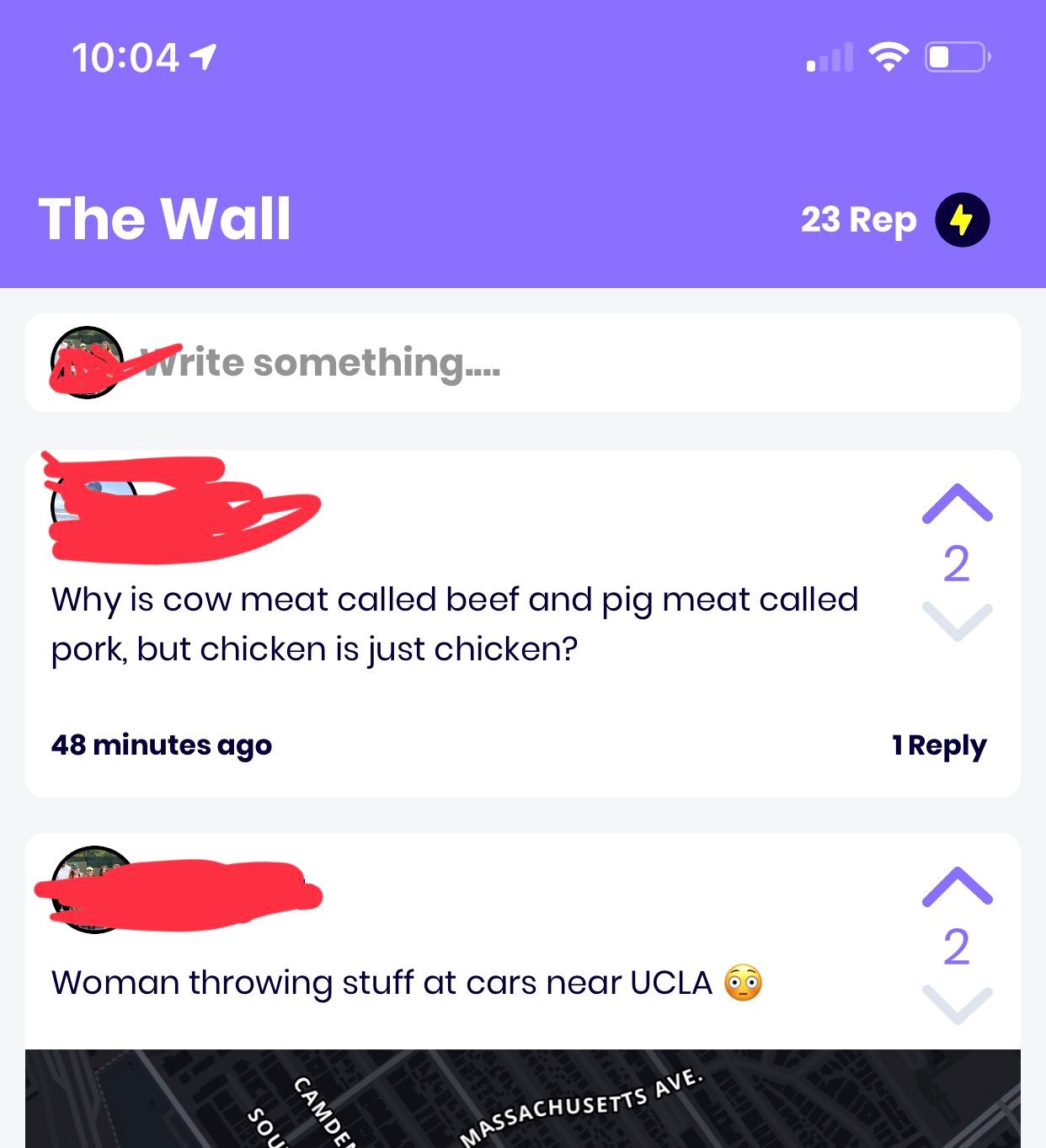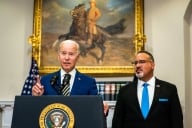You have /5 articles left.
Sign up for a free account or log in.
Despite their relatively short shelf life, the development of campus-based social media platforms isn't slowing down. Pop, the latest social media app to target students, is hoping to become the next big thing on college campuses.
Like other college social media apps before it, Pop takes elements of other social media platforms such as Facebook, Instagram and Slack, and brings them together with the aim of creating a digital community.
The goal is to help students find each other, said Alex Kehr, the CEO of Pop. The app has only been launched on two college campuses so far, the University of California, Los Angeles, and the University of Oregon. Kehr says his team picked the colleges at random.
Pop didn’t start out with the intention of becoming a social media platform for students. It was originally an online marketplace for emoji, animations and GIFs called Sticker Pop. Its name was changed to Pop last February, and a group chat function was added. A couple of months later, the app introduced new location-based public groups called communities. Students can still buy stickers through the app through monthly subscriptions, and while sticker sales will continue to provide a revenue stream, they will no longer be the focus of the app, said Kehr.
You don’t have to be a student to join the UCLA or the Oregon Pop community, but you do have to be on campus and have an iPhone, explained Kehr. Once you’ve joined a community, you can talk to anyone else in that community. People create profiles and groups and send each other direct messages. There is also a page called “the wall,” where anyone in the community can post anything, which is similar to Yik Yak, the controversial anonymous messaging app that launched in 2013 and shut down four years later, but without the built-in anonymity.
Around 3,000 students on each campus are using Pop, said Kehr. And there has been promising retention over the summer, when many other college apps such as Yik Yak, After School and Yeti saw their usage plummet.
Over the next few months, Pop will launch on several other campuses, though the exact locations are still to be determined, Kehr said. The biggest limitation in scaling up is staff, he said. Pop employees closely monitor what is said in groups and on the wall to ensure the conversations are civil and don't include the racist and misogynistic comments and other problematic content that became pervasive on Yik Yak.
“It’s been really interesting to see into the lives of students at two different colleges,” said Kehr. UCLA students are worrying much more about exams and finances, he said, whereas Oregon students are just making plans to hang out.
Kehr said he doesn't read students' private messages to each other, though technically there is nothing stopping him from doing so. On Pop's Twitter feed you can see snapshots of messages students' public posts -- most funny, some flirtatious. The app has already served a serious purpose, said Kehr -- after the recent California earthquakes, use of the app spiked as students were using it to check in on each other, he said.


Ricardo Vazquez, associate director of media relations at UCLA, said in an email that no one at the student affairs office had yet heard of the app, despite Pop using UCLA in its marketing materials. He did not say whether staff would be monitoring the app going forward.
“New social media applications are launched every day,” said Vazquez. “Due to the proliferation and fluctuation of these applications, and the changing needs of our students, as well as the changing nature of the technology they use, it is a challenge to anticipate what will achieve mass-market adoption by our students.”
Students at UCLA frequently launch their own apps and ask the institution for support in spreading the word to other students, said Vazquez.
“We attempt to do this in structured ways at campus events such as maker fairs, hackathons, etc., but the institution wants to protect students from excessive pitching and ads.”
UCLA does engage with students when applications and innovations start to impact campus life, said Vazquez. Recent topics of discussion have included e-scooter use, digital citizenship and online harassment.
While student social media apps like Pop aim to connect students, they can quickly become forums for rumors, bullying and hate speech. Kehr said his team was mindful of this when developing Pop and built in ways for users to report unacceptable behavior. So far, there haven’t yet been any reports, he said.
“Students are being really nice to each other,” he said.
Kehr said he learned from Yik Yak’s mistake -- there is no anonymity in Pop that would allow users to say whatever they want without accountability. But students don’t have to use their real names or even prove that they're actual students.
Danial Jameel, founder and CEO of Ready Education, a company that creates custom campus apps for institutions, said it’s likely that more apps like Pop will be popping up on college campuses.
“When you’re a young entrepreneur, you’re looking to solve problems around you -- that’s why so many apps and companies start at colleges,” said Jameel. But very few of them ever become successful companies, he said.
“This demographic is very fickle -- they have low loyalty to any one platform.”
Facebook launched at Harvard University 15 years ago and is now a multibillion-dollar tech company. But Jameel thinks it would be difficult to replicate that success.
“Facebook was a different era," he said. "Applying that same formula today isn’t going to work. Students will naturally ask why they need yet another platform.”
Before Ready Education became Ready Education, it was called OOHLALA. In its early days, the app launched on college campuses, guerilla-style -- without the knowledge of campus administrators -- similar to Pop. But Jameel soon realized that if he worked with colleges, he could engage more students.
Ready Education is just one of many companies working with colleges to create social media platforms and tools. Handshake is another app that works with colleges to connect students with campus career services and potential employers. Many others are pivoting into this space, with a mission to boost student success, said Jameel.
While launching an app on a college campus without the college’s knowledge might irritate student affairs staff, Jameel said he wouldn’t want developers to be prevented from doing this.
"I'm all for regulation, but not stifling innovation," he said.




